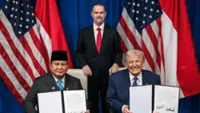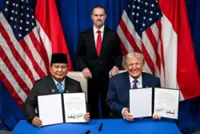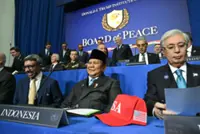A group of researchers from the Bogor Agricultural University (IPB) has introduced assisted reproductive technology for endangered species in an effort to assist in their conservation.
The technology involves in vitro fertilisation (IVF), an approach to produce an embryo outside the body using egg and sperm cells obtained from donors.
The process mimics natural fertilisation but with an assisted approach.
“The sperm cell is injected directly into the egg cell under a microscope,” said veterinarian Arief Budiono of IPB’s School of Veterinary Medicine and Biomedical Sciences in a statement issued on Tuesday, as quoted by kompas.com.
The embryo produced from the assisted fertilisation is later transferred to the recipient animal or frozen using liquid nitrogen until a recipient is ready to accept the fertilised egg.
IVF could optimise animal reproductive functions, allowing humans to save endangered animals like Sumatran rhinos and Sumatran tigers from extinction, Arief said.
Such a process can be repeated as long as the researchers can obtain egg cells from a living animal.
The IPB team is working with the Forestry Ministry to apply the technology to Sumatran rhinos.
Aside from the assisted fertilisation, the researchers also use a BioBank to store sperm cells, eggs and embryos and freeze somatic cells, which are used as donor cells in cloning programmes.
The government has launched several initiatives to save Sumatran rhinos, a critically endangered animal with no more than 40 left in the wild, according to the latest figures from the World Wildlife Fund. — The Jakarta Post/ANN





